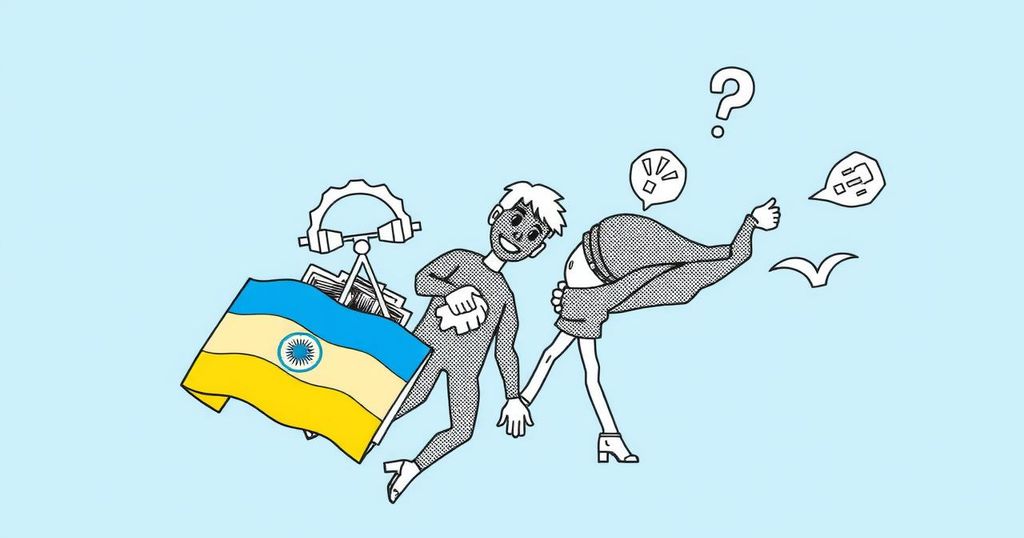Concerns Over Democratic Engagement in Uruguay’s 2023 Presidential Elections

Uruguay’s recent presidential elections have revealed a troubling lack of engagement and enthusiasm from voters, particularly among the youth. Despite its historical reputation for vibrant political processes, the nation faces serious issues such as high youth unemployment, food insecurity, and disillusionment with the candidates. Recent polling shows a willingness among young people to relinquish democratic principles in favor of effective governance, highlighting an urgent need for political engagement and reform.
This year, Uruguay’s presidential elections, despite their historical significance, were characterized by a notable lack of excitement, potentially obscuring serious underlying issues. Candidates failed to energize voters, culminating in a runoff election after no single candidate secured a majority. This disengagement starkly contrasts with Uruguay’s traditionally vibrant political engagement, spurred by memories of past dictatorship and a commitment to democratic values that have underpinned the nation’s stability for over four decades.
Yet, recent polling indicates a troubling sentiment among the youth: approximately 38 percent express a willingness to forsake democracy in favor of a government capable of addressing their critical issues. Young Uruguayans face significant challenges, including a staggering youth unemployment rate of 26 percent and elevated high school dropout statistics. Furthermore, they disproportionately experience food insecurity and high incarceration rates, with one in five young individuals living in poverty. The aftershocks of the Covid-19 pandemic have also incited a mental health crisis, contributing to a rising incidence of youth suicide.
The apathy of the youth is mirrored by discontent among older generations, who cite inadequate government responses to pressing issues such as childhood poverty and escalating crime rates. The administration of President Luis Lacalle Pou has faced scrutiny over fiscal mismanagement and corruption, despite a reduction in inflation rates. The disconnected nature of the presidential candidates in the current runoff is particularly evident among first-time voters in Montevideo, who conveyed a sense of alienation from the political discourse.
Uruguay has historically been a politically vibrant nation, known for its stability and democratic processes, especially in contrast to its neighboring countries facing significant political turmoil. As a relatively small nation of 3.4 million, it has fostered a deep-rooted enthusiasm for democratic engagement, largely stemming from a collective memory of resistance against dictatorship experienced in the latter half of the 20th century. The current electoral cycle, however, reveals a disconcerting trend: a marked disenchantment among the electorate, particularly the youth, which poses a potential threat to the democratic integrity of this nation.
The political landscape in Uruguay, traditionally rich in enthusiasm, is currently marred by apathy and a disconnect between the electorate and candidates. This trend is exacerbated by significant challenges facing the youth, including economic instability and social issues. If left unaddressed, such disillusionment could undermine the democratic fabric of Uruguay. It is essential for political leaders to recognize and engage the concerns of younger voters to restore confidence in the electoral process and the future of democracy in the country.
Original Source: www.nytimes.com






